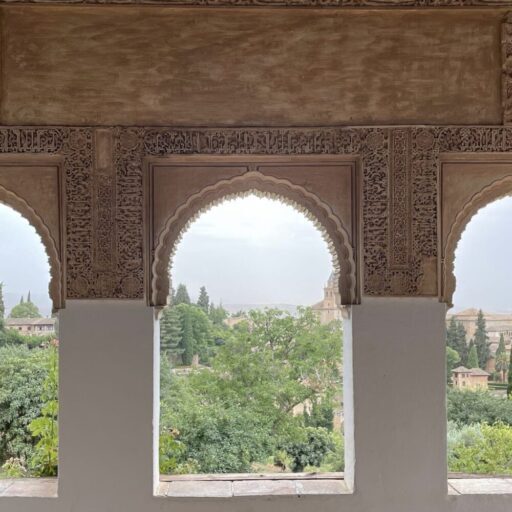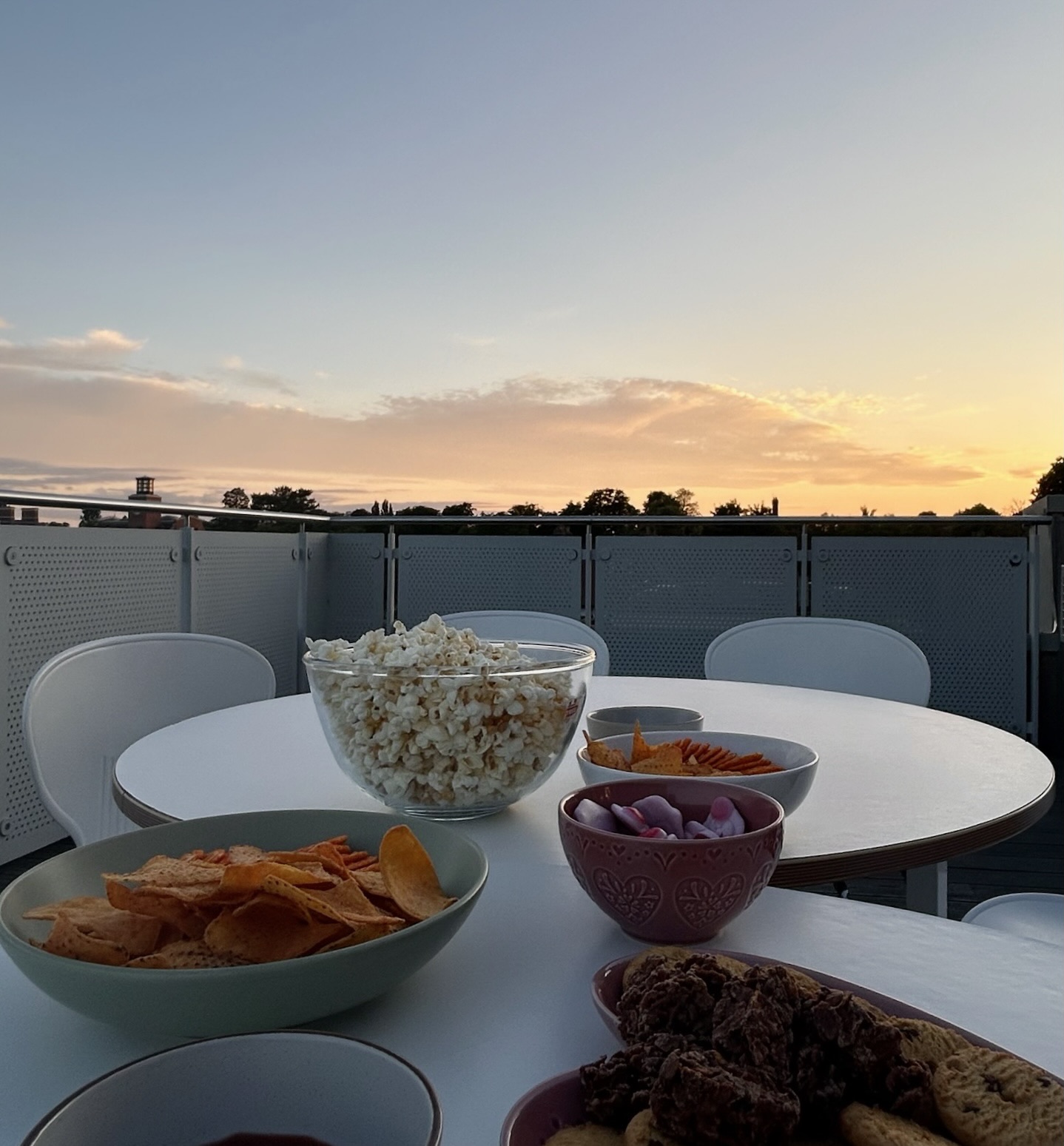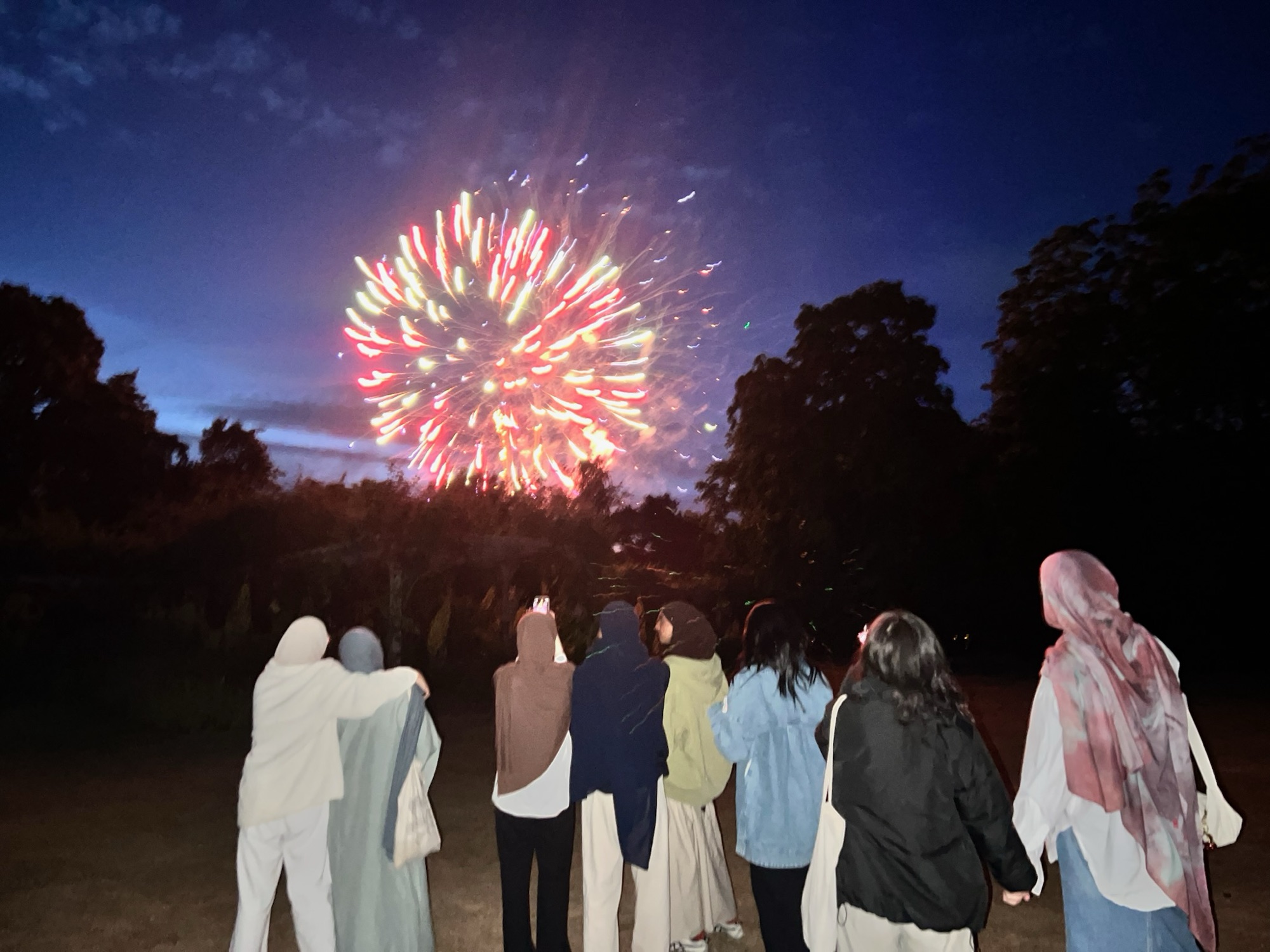It is only now, months after graduating, that I realise how special my conversations with friends were at university. They were hardly ever idle talk. Instead, our discussions felt like a continuous thread of topics, woven and knotted as we compounded our mutual insights throughout endless post-event debriefs, late-night ‘studying’ in the prayer room, or five-minute conversation breaks at our most haunted cafes. A unique meld of us wrapping our lives to fit the shape of each other, and the constant bleed of all our readings, degrees and personal experiences. Where the enigmatic dynamic of societies, cultures and religion became translated, funnelled through the vocabulary of our mutual disciplines.
More often than not however, the occasion was nothing but the talk: we stumbled into someone’s room, from bone-wearying days in the library, or after the flurry of an ISOC event, with nothing on our minds but the pleasure of each other’s company. After we settled on someone’s well-loved rug, hijab pins tugged out, mugs of chai passed around, the weight of the day was shed with our outer layers. After sharing our latest book and TV recommendations, sure enough, the conversation turned to the matters at hand: who we are as people, who we are as a community, who we are as Muslims.
In the 1970s, the urban Women’s Mosque Movement in Cairo was an integral part of the Islamic Revival in Egypt. In her Politics of Piety, Saba Mahmood emphasises that:
“This movement marks the first time in Egyptian history that such a large number of women have held public meetings in mosques to teach one another Islamic doctrine, thereby altering the historically male-centred character of mosques as well as Islamic pedagogy.”
A simple structure in which women gathered from local communities to discuss their faith, on mosque carpets, heads bent together in mutual respect and earnest discussion, which yet had seismic socio-religious impact. Reading Mahmood’s description of the movement during my final Cambridge term, I had the very rare experience of seeing my own life resonate like a tuning fork hitting a singular note. And suddenly, the conversations I was having with my friends seemed much more than us simply commenting on the thousand small injustices scattered throughout our days, or mostly friendly mock culture wars, in a high-drama mimicry of a home-culture nationalism. We were doing significant work—or that’s how it felt. Because conversation is never really just conversation. Our fears and hopes and critical analyses of the world around us were not just idle observations, but valuable insights into how we live as young Muslim women, shaped as much by each other and our degrees as by our colourful medley of backgrounds and upbringings, expectations and dreams.
However, though we gathered often as a community, it was mostly in one-to-one conversations, or small groups that we shared our vulnerable perspectives. Symptomatic of a collective societal condition, it feels harder to be completely unguarded in large gatherings. Instead, I noticed a pattern of dispersed oral citation, in which we gathered valuable opinions from one smaller group and shared them to another, in what became a naturally forming, ever-evolving web of female oral scholarship. Moreover, the Women’s Mosque Movement flourished due to regular community access to female musallahs. Instead, our scarce women’s prayer areas and community spaces are often basement dungeons or broom cupboards, leaving little room for prayer, let alone community building. On a smaller scale than the Women’s Mosque Movement, I wanted to therefore gather these perspectives, shared only incrementally and on a small-scale, in a multi-lateral, judgement- free space. Like Mahmood’s first-hand research, this project therefore came about as a form of micro-journalism, not to influence or warp our conversation, but to gather and hold onto it so that our necessary and brilliant perspectives would not dissipate into nothing once we graduated.
So, in the golden freedom of post-exam life, when we all had nothing much to do but dress up to the nines and frolic at endless garden parties, cavort through the cobbled streets in fits of giggles and try to soak in the last of our little life we’d built together, I bribed my girls with snacks onto a friend’s balcony at sunset. Somewhere to be sheltered and wrapped in the comfort of only each other’s openness, as I attempted to materialise the same thrumming magic of debate I had felt with each of them.
With three hours of recorded footage, a location change and one of our most memorable nights, this series is split into three chapters, focussing on community, religion and identity, and parents and marriage in turn.
Here’s the link to chapter one.
Chapter 1: What Do We Owe to Each Other?
I hope you enjoy these words <3


